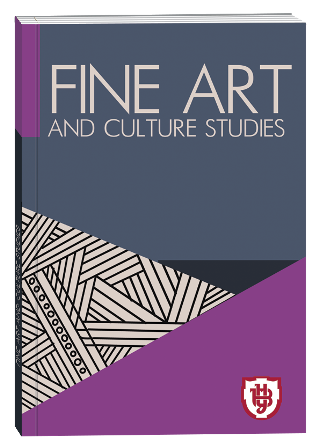THE CONCEPT OF MAZEPA’S ART IMAGE IN THE CREATION OF EUROPEAN AND IMPERIAL-RUSSIAN MYTHS IN THE MUSIC AND THE ROLE IN THIS LISZT AND TCHAIKOVSKY
DOI:
https://doi.org/10.32782/facs-2022-2-6Keywords:
Mazepa, myth, propaganda, national identification, poem, opera.Abstract
The historical person of the legendary Ukrainian Hetman Mazepa underwent bipolar mythologizing in the centuries after his death in literature, music and fine arts. In European discourse, his person was associated with a romantic rebellious hero who opposed the tyranny of the usurpers – a trend that was in line with the political and social paradigm of revolutionary events and national liberation movements that engulfed many countries in the early 19th century. The idea of freedom, national uplift with self-identification was the driving force of tectonic change on the continent. Mazepa is the embodiment of a hero who went through a difficult and stellar way, found the truth in the struggle for an independent state, and also survived the tragedy, because he witnessed the beginning of the end of Ukrainian independence. The aim of this article is to analyze the process of creating two opposing poetic myths about Hetman Mazepa, which built the artistic discourse in the 19th century. The relevance is n modern socio-cultural trends that exacerbate the idea of national identification, and the figure of the Ukrainian hetman is the most expressive. In our reality, it is important to offer a new look at the sustainable artistic processes that lasted about two hundred years ago. A novelty is the combination of different artistic approach in the whole picture of the confrontation of the two art worlds, based on stylistic aesthetics and propaganda campaign. The methodology is based on a systematic approach in the analysis of historical and art processes and phenomens, which allows to combine them into a wholeness. In conclusion, we argue that the process of creating myth and anti-myth has different time. If the propaganda imperial idea arose immediately after Mazepa’s death and went through several stages – from failure to success, the romantic idea of glorifying Mazepa’s image was associated with socio-political challenges in Europe in the first half of the 19th century, primarily national identification. Unfortunately, the imperial myth was equated with the European one – the efforts of the propaganda campaign were successful. The role of Liszt and Tchaikovsky in this process is unprecedented.
References
Brown D. Tchaikovsky. The Man and his Music. London : Published by Faber & Faber, 2007. 480 p.
Buja M. National Heroics: Liszt’s Mazeppa. Web. URL: https://interlude.hk/national-heroics-liszt-mazeppa/
Doak C. Poltava at 300: Re-reading Byron’s Mazeppa and Pushkin’s Poltava in the Post-Soviet Era. Australian Slavonic and East European Studies. Vol. 24, Nos. 1–2, 2010). Р. 83–101.
Fry J. D. Liszt’s Mazeppa : the history and development of a symphonic poem. Doctor of Musical Arts. Ohio, 1988. 86 p.
Lord Byron: Mazeppa / edited by P. Cochran. Web. URL: https://petercochran.files.wordpress.com/2009/03/ mazeppa.pdf
Oyan S. Liszt ve Senfonik Şiir: Mazeppa’ya Analitik Bakış. The Journal of Social Sciences Institute, 2020. Say 47. S. 75–98.
Rodriguez H. Rewriting Mazeppa: Meaning and communication in Liszt’s virtuoso and program music. Musicae Scientiae. Vol. 22 (4), 2018. P. 494–518.
Sibona B. Mazeppa’s Horse: a Case of anglo-french Intertextuality (Voltaire-Byron-Hugo). PhD. London, 2016. 208 p.
Smyrniw W. Hetman Ivan Mazepa in Life and Literature. Web. URL: https://www.uocc.ca/articles/hetman-ivanmazepa- in-life-and-literature/
Tchaikovsky-research. Web. URL: https://en.tchaikovsky-research.net/pages/Letters
Taruskin R. Tchaikovsky’s Opera of Dark Cravings. The New York Times, 1998. May 3.
Дзюба О. Чи писав гетьман Іван Мазепа листи Мотрі Кочубеївні. Український історичний журнал. 2009. Вип. 6 (№ 489). С. 17–24.
Ізваріна О. М. Рукописна спадщина відомого українського композитора П. П. Сокальського (за особистим архівом). Вісник НАКККіМ, 2010. № 1. С. 99–106.







